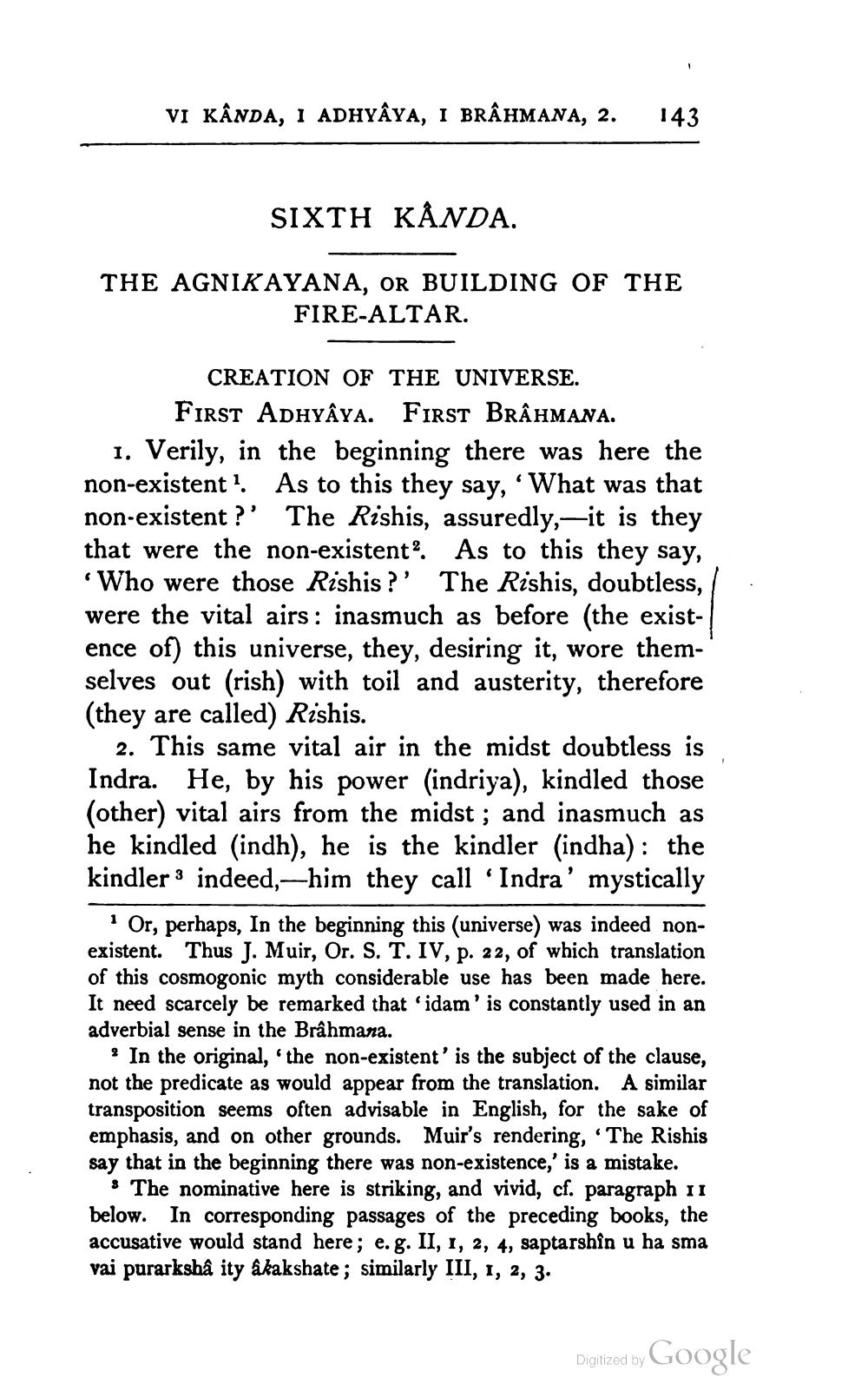________________
VI KÂNDA, I ADHYÂYA, I BRÂHMANA, 2.
143
SIXTH KÅNDA.
THE AGNIKAYANA, OR BUILDING OF THE
FIRE-ALTAR.
CREATION OF THE UNIVERSE.
FIRST ADHyÂYA. First BRÂHMANA. 1. Verily, in the beginning there was here the non-existent? As to this they say, 'What was that non-existent ?' The Rishis, assuredly,—it is they that were the non-existent?. As to this they say,
Who were those Rishis ?' The Rishis, doubtless, were the vital airs : inasmuch as before the existence of) this universe, they, desiring it, wore themselves out (rish) with toil and austerity, therefore (they are called) Rishis.
2. This same vital air in the midst doubtless is Indra. He, by his power indriya), kindled those (other) vital airs from the midst; and inasmuch as he kindled (indh), he is the kindler (indha): the kindler 3 indeed,-him they call 'Indra' mystically
Or, perhaps, In the beginning this (universe) was indeed nonexistent. Thus J. Muir, Or. S. T. IV, p. 22, of which translation of this cosmogonic myth considerable use has been made here. It need scarcely be remarked that 'idam'is constantly used in an adverbial sense in the Brahmana.
? In the original, the non-existent' is the subject of the clause, not the predicate as would appear from the translation. A similar transposition seems often advisable in English, for the sake of emphasis, and on other grounds. Muir's rendering, The Rishis say that in the beginning there was non-existence,' is a mistake.
The nominative here is striking, and vivid, cf. paragraph 1 below. In corresponding passages of the preceding books, the accusative would stand here; e. g. II, 1, 2, 4, saptarshîn u ha sma vai purarksba ity akakshate; similarly III, 1, 2, 3.
Digitized by Google




